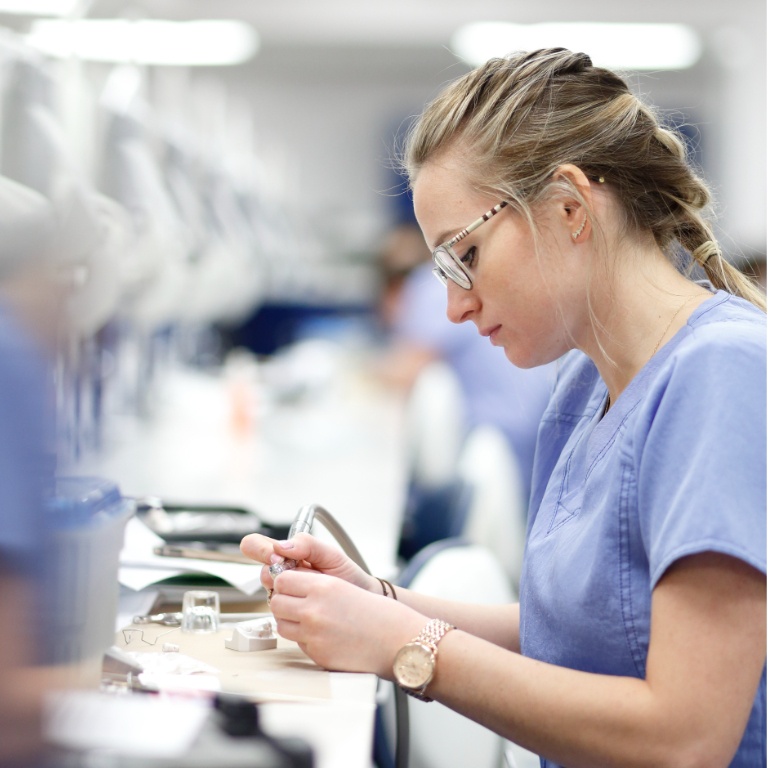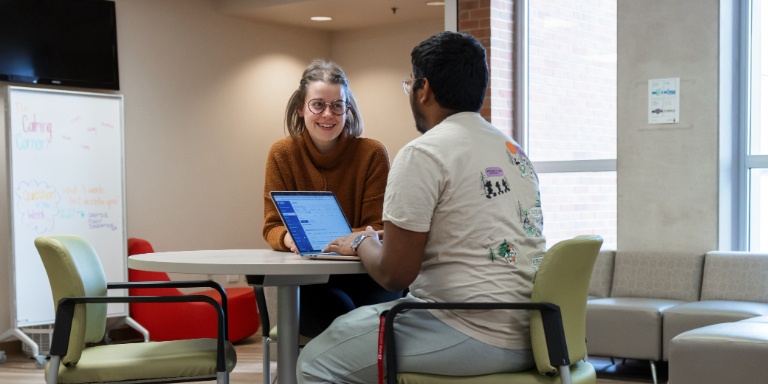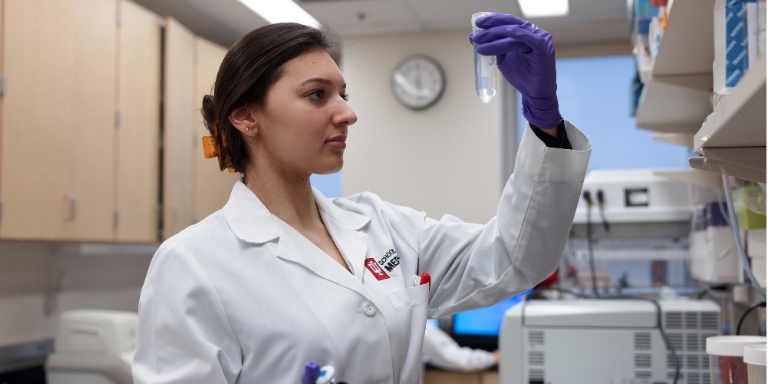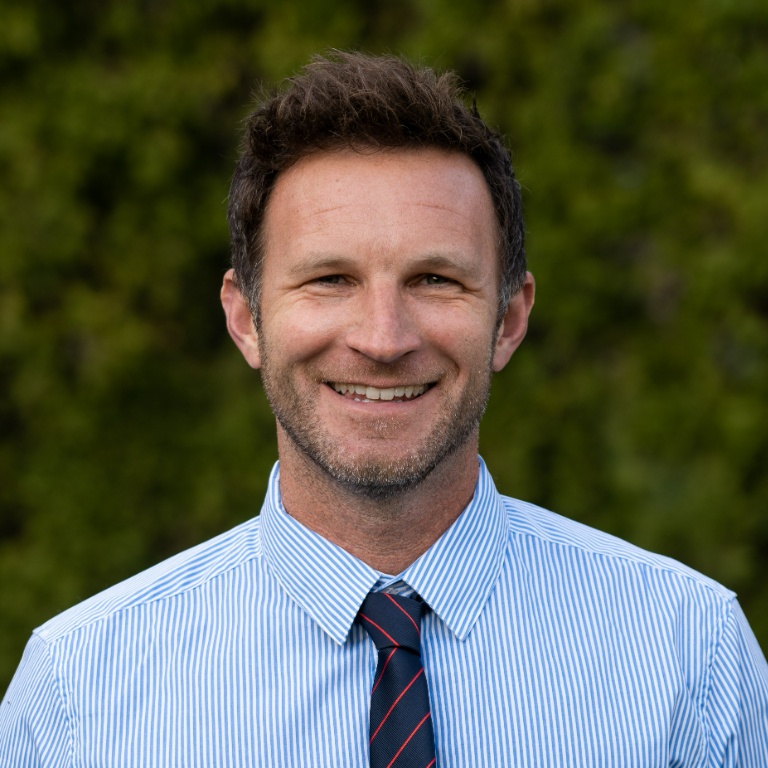
Director of Professional Development and HLSAC
The Health and Life Sciences (HLS) Advising Center prepares students to pursue majors and careers in various fields across the health care industry.
What can you do with a life sciences degree? Careers in health and life sciences include direct patient care, laboratory work, health care administration, or health education.
HLS supports students in undergraduate programs that are application-based and non-competitive, including:
We also advise current IU Indianapolis students preparing for professional school in health care but are not pursuing degrees through the School of Science. Pre-professional health programs include medicine, dentistry, optometry, physical therapy, physician assistant, occupational therapy, pharmacy, chiropractic, and even veterinary medicine.
No matter your path, the HLS career consultant and advisors will help you plan your schedule, prepare your application, create parallel plans, and develop career goals that align with your personality, interests, and skills. We're here to partner with you. If you're serious about following a career path in the health and life sciences, it's important to plan early and carefully.
As you prepare to transition into the world of work, we'll support you in engaging in purposeful and productive co-curricular activities, such as research, study abroad, service learning, and internships.



Meet who you’ll be working with on your academic journey.

Director of Professional Development and HLSAC

Student Success Advisor/Team Coordinator, HLS Cluster

Student Success Advisor, HLS Cluster

Student Success Advisor, HLS Cluster

Student Success Advisor, HLS Cluster

Student Success Advisor, HLS Cluster

Student Success Advisor, HLS Cluster

Student Success Advisor, HLS Cluster

Student Success Advisor, HLS Cluster

Career Consultant, MCE and HLS Clusters
Explore health and life science majors.
Become part of the largest group of imaging professionals out there by learning to use X-rays to diagnose disease. Students in this program receive an associate’s degree. Those wanting to receive a bachelor’s degree may apply to the medical imaging technology program during their second year in the radiography program.
A radiologist is a physician specializing in this science, and a radiographer (or radiologic technologist) produces radiographic images under the direction of the radiologist. In addition to performing diagnostic X-ray procedures, they also assist in fluoroscopic examinations and in special radiographic procedures. Other tasks performed by radiographers vary. Radiographers must be able to handle seriously ill and injured patients to obtain the maximum amount of information without injury to the patient and with the least amount of pain and discomfort from the examination. Most technologists are employed in hospitals, clinics, and physicians' offices.
Employment of radiologic and MRI technologists is projected to grow 6% from 2023 to 2033, faster than the average for all occupations. About 16,000 openings for radiologic and MRI technologists are projected each year, on average, over the decade. Many of those openings are expected to result from the need to replace workers who transfer to different occupations or exit the labor force, such as retirement ( Occupational Outlook Handbook, 2024).
According to the IUPUI (now called IU Indianapolis) First Destination Survey in 2021, the average starting salary reported for School of Medicine graduates was $59,950, and the median salary was $58,000 .
The national median annual salary for radiologic and MRI technologists was $76,020 in 2023 ( Occupational Outlook Handbook).
(This section is intended for informational purposes, not prediction of actual salary.)
Radiography majors often continue their education to complete a bachelor’s degree in the following areas:
Once a bachelor’s degree is obtained, some graduates continue to advance their careers through a master’s degree in fields like health administration.
*This career requires additional training or education.
Admission by application Information about applying to the Radiography Program TEAS Exam information
Undergraduate research experiences enable you to develop important problem-solving skills and experience for your future career.
Working on campus can provide great preparation for a variety of health-related careers.
Undergraduate research experiences help you develop important problem-solving skills and experience for your future career. Gaining research experience can be particularly helpful if you’re interested in clinical laboratory science or cytotechnology.
Students in this program learn to help patients with chronic respiratory diseases breathe more easily. They grow in their ability to think critically, identify certain health conditions, and practice medicine in a compassionate way.
Students pursuing this degree learn to provide emergency care to patients suffering from heart attacks, drowning, or shock. They cultivate many different skills to develop and implement effective care plans, protocols, and disease management programs.
Advanced-level respiratory therapists participate in clinical decision making and patient education, the development and implementation of protocols and treatment plans, health promotion, disease prevention, and disease management.
Employment of respiratory therapists is projected to grow 13% from 2023 to 2033, much faster than the average for all occupations. About 8,200 openings for respiratory therapists are projected each year, on average, over the decade. Many of those openings are expected to result from the need to replace workers who transfer to different occupations or exit the labor force, such as retirement ( Occupational Outlook Handbook, 2024).
According to the IUPUI (now called IU Indianapolis) First Destination Survey in 2021, the average starting salary reported for School of Medicine graduates was $59,950, and the median salary was $58,000.
The national median annual salary for respiratory therapists was $77,960 in 2023 ( Occupational Outlook Handbook).
(This section is intended for informational purposes, not prediction of actual salary.)
Respiratory therapy majors often pursue advanced degrees in the following areas:
Admission by application Information about applying to the Respiratory Therapy Program Admission and Interview Tips
Undergraduate research experiences enable you to develop important problem-solving skills and experience for your future career.
Working on campus can provide great preparation for a variety of health-related careers.
Undergraduate research experiences help you develop important problem-solving skills and experience for your future career. Gaining research experience can be particularly helpful if you’re interested in clinical laboratory science or cytotechnology.
View upcoming academic and career events that help put you on the right path to achieving your goals.
Clinical Lab Science Application Deadline
All applications are due on this date.
Cytotechnology Application Deadline
All applications due by this date.
Paramedic Science Application Deadline
All applications are due on this date.
Clinical Lab Science Application Deadline
All applications are due on this date.
Cytotechnology Application Deadline
All applications due by this date.
Not sure if you want to pursue a health and life sciences degree? Explore majors under other specialized support teams in Academic and Career Development.
IU Indianapolis
Health and Life Sciences Advising Center
Taylor Hall, 3004
815 W Michigan St
Indianapolis, IN 46202
Monday: 8 a.m.–5 p.m.
Tuesday: 8 a.m.–5 p.m.
Wednesday: 8 a.m.–5 p.m.
Thursday: 8 a.m.–5 p.m.
Friday: 9 a.m.–4 p.m.
Saturday: Closed
Sunday: Closed